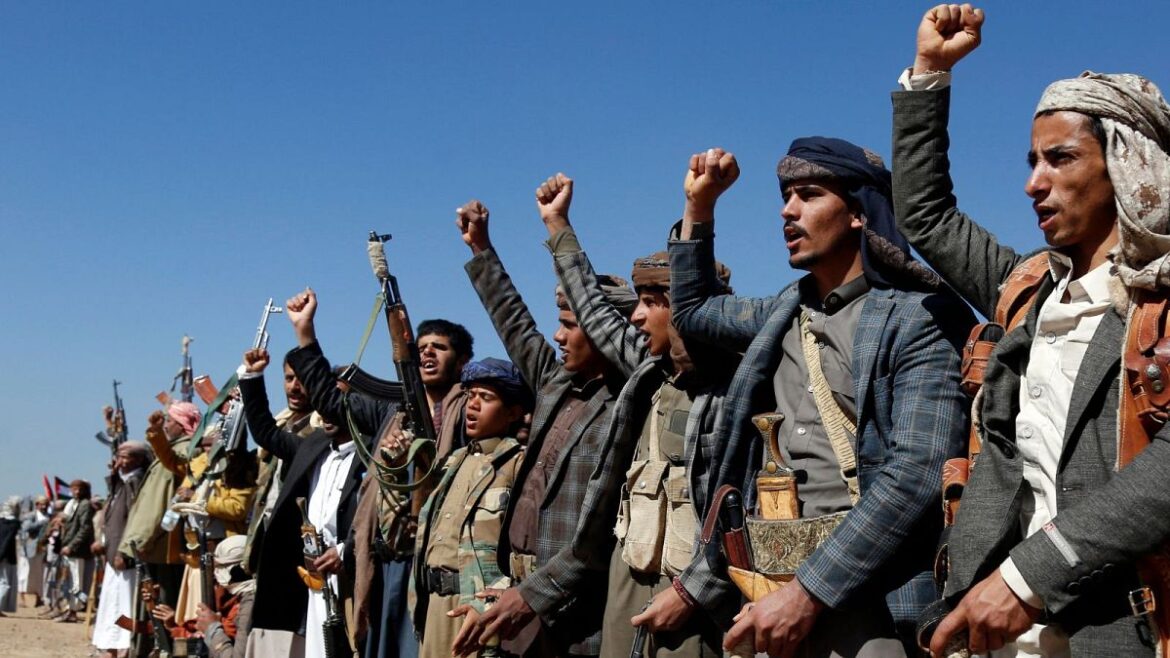The group, a Shiite Zaidi movement that has been fighting Yemen’s Sunni-majority government since the early 2000s, recently launched a series of attacks on commercial ships in the Red Sea, disrupting global trade.
After weeks of attacks on commercial shipping in the Red Sea, Yemen’s Houthi rebels are now at the heart of growing tensions in the Middle Eastwhich threaten to extend the war between Israel and Hamas to a regional conflict.
But who are the Houthis really?
The Houthis are an armed political and religious group that identifies with Yemen’s Shiite Muslim minority, the Zaidis. Along with Palestinian Hamas and Lebanese Hezbollah, the group has positioned itself against Israel, the United States and the West.
The group was founded in the 1990s by Hussein al-Houthi, but he first became known to the general public in the early 2000s, when he fought against Yemen’s longtime authoritarian president, Ali Abdullah Saleh.
In 2011, during the Arab Spring, the leader ceded power to his deputy Abdrabbuh Mansour Hadi. It was under the latter’s troubled government thatIn 2014, Iran-backed Houthi rebels swept from their stronghold in northern Yemen and seized the capital, Sanaa.
In 2015, the group forced Abdrabbuh Mansour Hadi to flee abroad after seizing part of the country. The action sparked a backlash from Saudi Arabia, which feared the establishment of a Houthi government that it said would essentially become a satellite of Iran.
The same year, a Saudi-led coalition intervened to try to restore the internationally recognized Yemeni government in exile to power, but the conflict ultimately ended in a proxy war between Saudi Arabia and Iran.
The war in Yemen, the world’s poorest Arab nation, lasted years and ravaged the country, killing 150,000 people, including civilians and fighters, and creating a humanitarian catastrophe. The war ended in a ceasefire more than a year ago, but permanent peace has yet to be achieved.
The current leader of the Houthis is the brother of the group’s founder, Abdul Malik al-Houthi.
What is happening now?
While the Houthis have sporadically attacked ships in the Red Sea, they have intensified attacks on commercial shipping since an Israeli strike hit a hospital in Gaza on October 17, killing and injuring many civilians.
The Houthis say they will not stop disrupting trade in the Red Sea until there is a permanent ceasefire in Gaza. They target Israeli-owned or operated vessels. But only a few of the attacked ships have direct ties to Israel.
Iran has denied any involvement in these attacks.
Last week, US and British warships and aircraft fired missiles at Houthi targets in Yemenjustifying their attacks as retaliation for the group’s relentless assaults on shipping in the Red Sea, despite warnings from Washington.
The United States had so far avoided retaliating, with President Joe Biden repeatedly saying he feared a dangerous escalation of the war in the Middle East. But last Tuesday, the Houthis launched their largest shipment attack drones, cruise missiles and anti-ship ballistics on several commercial and military ships in the Red Sea, which forced the United States to respond militarily.
According to the Houthis, the US and British strikes killed five members of their forces and injured six. The group refused to stand down and vowed to fight back.



